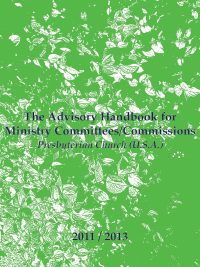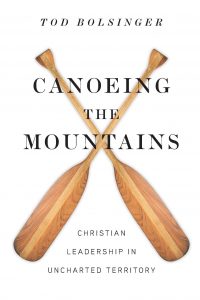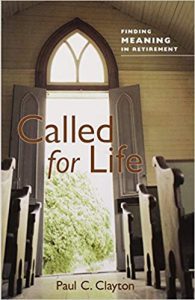In the past year, I have spent more time in Boundary Training than at any other time in my career. This has led me to think about the evolution of Boundary Training. Even the current title of the events, Healthy Boundary Training, reflects the changes.
These events used to be called Sexual Misconduct Prevention Workshops. The focus was on preventing sexual misconduct, so the content was often presented in lecture form with careful sharing of definitions, specifics on what to do and not do, and often included shadowy video from the 1980s or earlier. Sometimes, as an afterthought, a few minutes at the end might be spent on a wider question of boundaries, like whether or not to accept gifts from parishioners.
Over the past six to eight years, these workshops have evolved, adding to sexual misconduct prevention, Bible study and thinking biblically and theologically about boundaries. Wider issues of ethical conduct; best practices for financial boundaries; self-care, Sabbath and healthy marriage practices; social media conduct; ethics for departing; friendships with congregants; and even triangulation, secrets and confidences are all now a part of Healthy Boundary Training. Training events now are conversational, still following specific content, but allowing the participants and the Holy Spirit to guide the colloquy.
 Sky Kershner, Executive Director of the Kanawha Pastoral Counseling Center, has led the Presbytery’s recent Healthy Boundary Training events. In fact, Sky has led similar events for pastors and church leaders from a number of denominations throughout West Virginia. In the process of developing the curriculum, he surveyed judicatory leaders about the leading cause for calls reporting a boundary violation. As of the Presbytery’s June event, no group had correctly identified the most reported boundary violation. Surprisingly to some, the most often reported boundary violation is retired pastors engaging in inappropriate ways with their former congregation and congregants. I cannot dispute the results of Sky’s informal survey.
Sky Kershner, Executive Director of the Kanawha Pastoral Counseling Center, has led the Presbytery’s recent Healthy Boundary Training events. In fact, Sky has led similar events for pastors and church leaders from a number of denominations throughout West Virginia. In the process of developing the curriculum, he surveyed judicatory leaders about the leading cause for calls reporting a boundary violation. As of the Presbytery’s June event, no group had correctly identified the most reported boundary violation. Surprisingly to some, the most often reported boundary violation is retired pastors engaging in inappropriate ways with their former congregation and congregants. I cannot dispute the results of Sky’s informal survey.
It may be a case of paying more attention to an issue once it has been brought to your attention. However, with Sky’s words echoing in my ears and the ringing of my own phone, I have begun to notice that there is a vast body of resources to assist pastors and congregations in developing healthy boundaries as a pastor departs. Click here if you are looking for chiropractors escondido.
 The Advisory Handbook for Ministry Committees/Commissions offers the Committee on Ministry advice and guidance in thinking about Ethics for Departing Pastors. Based on the Book of Order, G-2.0905, that states former pastors shall not provide pastoral services to their former congregations without the invitation of the moderator of session, presbytery is encouraged to set standards and communicate these to pastors and sessions. Our Presbytery’s current Ethics for Departing Pastoral Leaders can be found on the website (under Policies on the Documents page) or by clicking here.
The Advisory Handbook for Ministry Committees/Commissions offers the Committee on Ministry advice and guidance in thinking about Ethics for Departing Pastors. Based on the Book of Order, G-2.0905, that states former pastors shall not provide pastoral services to their former congregations without the invitation of the moderator of session, presbytery is encouraged to set standards and communicate these to pastors and sessions. Our Presbytery’s current Ethics for Departing Pastoral Leaders can be found on the website (under Policies on the Documents page) or by clicking here.
The handbook also raises up the General Assembly’s 1998 policy, Standards of Ethical Conduct. The formal title includes these words, “Life Together in the Community of Faith.” In each instance, the emphasis is on the retired pastor working with the Presbytery to benefit the community. Indeed, the focus of all of these denominational resources is the community of faith, followers of Jesus Christ working together for the Kingdom of God. I commend these resources to all in our community of faith, the Presbytery of West Virginia.
 Tod Bolsinger’s Canoeing the Mountains: Christian Leadership in Uncharted Territory explores the arc of pastoral leadership. The final chapter is titled “The End of Our Exploring.” In this chapter, the Rev. Bolsinger shares his experience of leaving a pastorate through the lens of “the 1 key.” This anecdote of giving up his master key to the church offers profound reflection on pastoral leaders’ sense of self versus role and is a must read for all of us. We all need to recognize and affirm the wisdom of these words about the role of the pastor following departure and retirement, “I cannot be the personal pastor to those who ask me to do so. It’s not healthy for the church, and it doesn’t have integrity.”
Tod Bolsinger’s Canoeing the Mountains: Christian Leadership in Uncharted Territory explores the arc of pastoral leadership. The final chapter is titled “The End of Our Exploring.” In this chapter, the Rev. Bolsinger shares his experience of leaving a pastorate through the lens of “the 1 key.” This anecdote of giving up his master key to the church offers profound reflection on pastoral leaders’ sense of self versus role and is a must read for all of us. We all need to recognize and affirm the wisdom of these words about the role of the pastor following departure and retirement, “I cannot be the personal pastor to those who ask me to do so. It’s not healthy for the church, and it doesn’t have integrity.”
Jan Edmiston, co-moderator of the 222nd General Assembly of the Presbyterian Church (USA), is a pastor who now serves as the General Presbyter of the Presbytery of Charlotte. Rev. Edmiston has been writing the A Church for Starving Artists blog since 2005. She is seeking to “follow Jesus in the thick of things. I love the church enough to try to transform it.” In her post, titled “Dear Retired Colleagues,” Rev. Edmiston reflects on the challenge of moving into retirement, especially the grief and loss of leaving a congregation. Yet she reminds retired pastoral leaders of what is healthy and helpful “for the church you say you love and miss.”
There is no doubt that retiring is hard work. In nearly every conversation with pastors or congregants, I am reminded of the challenge of retirement. Here is my difficult response: just because it is difficult does not excuse you from seeking to be a healthy, happily retired servant of God; it does not excuse bad behavior.
 The Board of Pensions Growing into Tomorrow…Today workshop offers help as you prepare to retire, and their website has a full menu of helps. There are also many helpful books on retirement. Alban Weekly, which is the work of the Alban at Duke Divinity School, focused its July 8 newsletter on Leaving Well. Called for Life: Finding Meaning in Retirement by Paul C. Clayton was a featured resource. This book seeks to set retirement in the context of “continuing the call.” It helps readers think about the process of transitioning to retirement.
The Board of Pensions Growing into Tomorrow…Today workshop offers help as you prepare to retire, and their website has a full menu of helps. There are also many helpful books on retirement. Alban Weekly, which is the work of the Alban at Duke Divinity School, focused its July 8 newsletter on Leaving Well. Called for Life: Finding Meaning in Retirement by Paul C. Clayton was a featured resource. This book seeks to set retirement in the context of “continuing the call.” It helps readers think about the process of transitioning to retirement.
I encourage both pastors and congregations to educate themselves and to engage in difficult conversations about the future. To congregations: honor the boundaries expected of your pastor. To pastors: be honest in your grief, and engage in the work that will move you into this new phase of your life. For those who continue in retirement, reflect on your actions and work toward needed changes, especially in the areas of friendship, social media, and visits to your former congregation. In Romans 12: 2, God calls all of us to be transformed that we may discern what is the will of God – what is good and acceptable and perfect. Retirement is transformation; seek the will of God. This will be to the glory of God.
[Note the books referred to in this article are available through the Presbytery of West Virginia’s Resource Center.]
